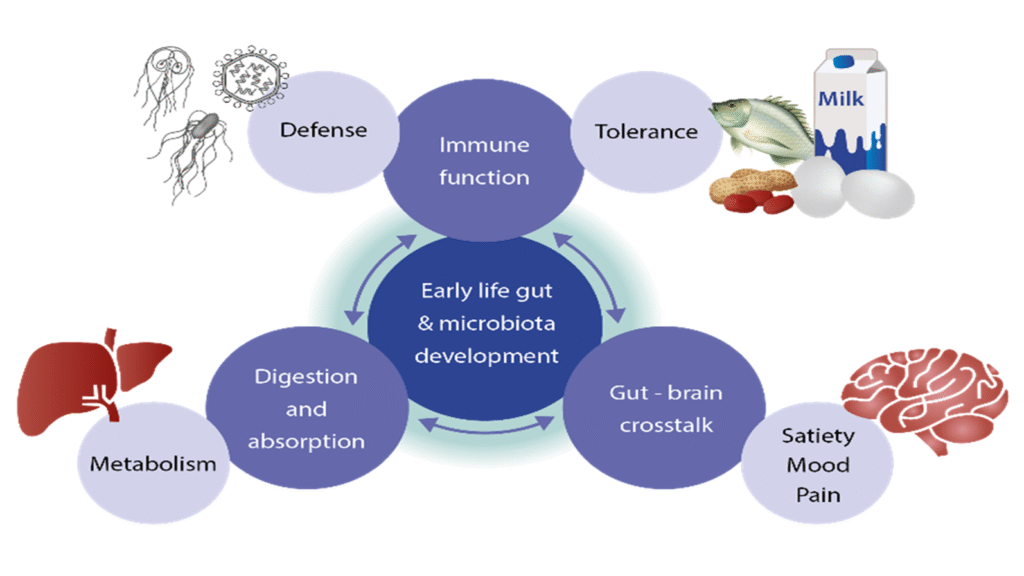Health is the cornerstone of a fulfilling life. It impacts our ability to work, think, and enjoy moments with our loved ones. But with the overwhelming amount of health advice available, how do we know if we are following the right daily health routine? This article explores the essential elements of a proper daily health regimen, dispels common myths, and helps you evaluate whether your routine truly supports your well-being.
Key Takeaways
- Sleep well – Aim for 7-9 hours nightly.
- Eat smart – Focus on whole and nutrient-rich foods.
- Exercise regularly – Minimum of 150 minutes per week.
- Stay hydrated – Drink at least 8-10 glasses of water daily.
- Manage stress effectively – Practice mindfulness and relaxation techniques.
- Monitor health – Regular medical check-ups are essential.
- Stay socially connected – Strong relationships enhance mental health.
- By incorporating these elements into your daily routine, you can achieve a healthier, more fulfilling life. Are you ready to refine your daily health routine?
Understanding a Healthy Daily Routine
A daily health routine is not just about exercise or diet; it encompasses sleep, stress management, hydration, and mental well-being. It is a holistic approach to ensuring long-term vitality and preventing illnesses.
Key Components of a Healthy Routine
- Adequate Sleep – Essential for cognitive function and immune system support.
- Nutritious Diet – Provides energy and vital nutrients to sustain bodily functions.
- Regular Exercise – Enhances cardiovascular health, flexibility, and strength.
- Hydration – Maintains organ function and skin health.
- Mental Wellness – Reduces stress and improves emotional resilience.
- Preventive Healthcare – Regular check-ups and screenings to avoid major health concerns.
- Social Connection – Building meaningful relationships contributes to overall happiness.
Sleep: The Foundation of Good Health
Many people underestimate the power of sleep. Research suggests that adults require at least 7-9 hours of quality sleep per night. Sleep deprivation leads to cognitive decline, weakened immunity, and increased stress levels.
Tips for Better Sleep:

- Maintain a consistent bedtime.
- Limit screen time before sleeping.
- Ensure a comfortable sleeping environment.
Balanced Nutrition: Fuel for the Body
Nutrition plays a pivotal role in physical health. The food choices you make affect metabolism, weight management, and disease prevention.
Essential Nutrients:
- Proteins – Help in muscle repair and immune function.
- Carbohydrates – Provide energy and support brain activity.
- Fats – Crucial for hormone production and brain function.
- Vitamins & Minerals – Essential for cellular function and immunity.
Tips for Healthy Eating:
- Avoid processed foods and refined sugars.
- Consume a variety of fruits and vegetables.
- Maintain a balanced intake of proteins, carbohydrates, and fats.
Exercise: Movement for Longevity
Regular exercise strengthens muscles, bones, and the heart. It also promotes mental well-being by reducing stress and anxiety.
Best Forms of Exercise:
- Cardiovascular workouts (running, cycling)
- Strength training (weightlifting, resistance bands)
- Flexibility exercises (yoga, stretching)
Recommended Routine: Aim for at least 150 minutes of moderate-intensity exercise weekly.
Hydration: The Unsung Hero of Health
Water is crucial for detoxification, circulation, and digestion. A dehydrated body struggles with headaches, low energy, and concentration issues.
Optimal Water Intake: Drink at least 8-10 glasses per day. Hydrate more if active or living in hot climates.
Mental Wellness & Stress Management
Mental health affects physical health. Chronic stress leads to hormonal imbalances, anxiety, and reduced immune function.
Ways to Manage Stress:
- Practice mindfulness or meditation.
- Engage in hobbies and creative activities.
- Seek professional counseling if needed.
Preventive Healthcare & Regular Check-ups
Prevention is better than cure. Regular screenings can help detect potential health concerns before they become serious.
Common Health Check-ups:
- Blood pressure monitoring
- Cholesterol and sugar level screening
- Cancer screenings (as per age and risk factors)
Social Connection & Mental Well-being
Building strong relationships is linked to a longer lifespan and reduced stress. Social interactions positively impact mental health.
Ways to Enhance Social Health:
- Connect with family and friends regularly.
- Engage in community activities.
- Pursue shared hobbies with loved ones.
The Role of Gut Health in Overall Well-being
Gut health has gained significant attention in recent years as researchers uncover its profound impact on overall well-being. Often referred to as the “second brain,” the gut is home to trillions of bacteria, fungi, and other microorganisms collectively known as the gut microbiome. These microorganisms influence digestion, immunity, metabolism, and even mental health. Maintaining a healthy gut is crucial for ensuring optimal health and disease prevention.
Understanding the Gut Microbiome
The gut microbiome consists of both beneficial and harmful bacteria. When the balance is disrupted—due to poor diet, antibiotics, stress, or illness—it can lead to various health issues, including digestive disorders, obesity, weakened immunity, and mental health challenges. A well-balanced microbiome promotes efficient digestion, nutrient absorption, and protection against harmful pathogens.
How Gut Health Affects the Body
Your gut does much more than digest food—it plays a crucial role in your overall health and well-being. The trillions of bacteria and microorganisms living in your digestive system, collectively called the gut microbiome, influence many vital functions in your body. Here’s how gut health impacts key areas:
Digestion and Nutrient Absorption
The gut bacteria are essential for breaking down complex foods that your body alone can’t digest. They help synthesize important vitamins like B12 and K, aid in nutrient absorption, and regulate metabolism. When the gut microbiome is imbalanced or unhealthy, it can lead to digestive issues such as bloating, constipation, diarrhea, and malabsorption of nutrients, which can affect energy levels and overall health.
Immune System Support
About 70% of your immune system is located in the gut. A balanced gut microbiome helps maintain a strong defense against harmful pathogens, reduces chronic inflammation, and supports immune responses. An unhealthy gut can lead to increased susceptibility to infections and autoimmune conditions.
Mental Health and Mood Regulation
There’s growing evidence of the gut-brain axis—a communication network between your gut and brain. The gut produces neurotransmitters like serotonin, often called the “feel-good” hormone, which plays a vital role in mood regulation and stress management. An imbalance in gut bacteria has been linked to mental health disorders such as anxiety, depression, and cognitive decline.
Weight Management
The gut microbiome influences how your body metabolizes food and stores fat. An unhealthy balance of gut bacteria can contribute to obesity, metabolic disorders like insulin resistance, and difficulties in maintaining a healthy weight despite diet and exercise efforts.
How to Build a Sustainable Morning Routine for Long-Term Health
Why this works: Morning routines are one of the most searched wellness habits on platforms like Google, YouTube, and Instagram. This topic allows you to blend science-backed habits with real-life simplicity.
What to cover:
- The importance of hydration, sunlight, and movement first thing in the morning
- Why most people fail to stick to morning habits
- A step-by-step 15-minute to 60-minute plan
- Mindfulness and tech-free time before checking phones
Why Sleep is the Missing Piece in Your Health Routine
Why this works: Sleep is often ignored but directly affects weight, mental clarity, and disease risk. This article appeals to professionals, students, and parents alike.
What to cover:
- How poor sleep sabotages metabolism, mood, and immunity
- Ideal bedtime habits (no blue light, sleep hygiene, etc.)
- When to seek medical help for sleep issues
- Tools: wearables, white noise apps, herbal teas
Beginner’s Guide to Mental Fitness: Daily Habits for a Resilient Mind
Why this works: Mental health content is growing fast, but many readers are overwhelmed by complex advice. This article simplifies it for beginners.
What to cover:
- Difference between mental health and mental fitness
- Morning and evening rituals for emotional balance
- Simple practices like journaling, affirmations, and breathwork
- How to build mental strength through adversity.
How to Stay Healthy While Working a Desk Job
Why this works: Millions work remotely or in offices and struggle with posture, weight gain, and stress.
What to cover:
- Desk stretches, eye health, and walking breaks
- Healthy snacks and meal prep tips
- Setting boundaries with screen time
- Best ergonomic gadgets under $100
Digital Detox: Why Unplugging Is Crucial for Mental and Physical Health
Why this works: With rising screen time, digital burnout is real. This topic is especially relevant for remote workers, students, and parents.
What to cover:
- Effects of screen time on sleep, focus, and anxiety
- The science behind dopamine overload from apps
- How to do a 24-hour or 7-day digital detox
- Practical boundaries (screen-free mornings, no-phone zones)
The Truth About Gut Health: How Your Microbiome Shapes Everything

Why this works: Gut health is a massive trend, but many articles lack scientific grounding. A well-researched article will help you stand out.
What to cover:
- What the gut microbiome is and how it affects digestion, immunity, mood, and even weight
- Signs your gut health may be off-balance
- Foods that support a healthy microbiome (fermented foods, prebiotics, fiber)
- The role of antibiotics, stress, and sleep in gut imbalance
How to Make Exercise a Daily Habit (Even if You Hate the Gym)
Why this works: Many people want to exercise but don’t enjoy traditional gyms or feel intimidated. This topic helps people relate and take action.
What to cover:
- Types of movement that don’t feel like exercise (dancing, walking, hiking, stretching)
- How to make fitness fun and sustainable
- Science of habit formation and consistency
- Sample 7-day no-gym workout plan
Why Hydration Is More Than Just Drinking Water
Why this works: Many assume hydration equals just “drinking more water.” This topic lets you dive deeper into electrolytes, food-based hydration, and lifestyle strategies.
What to cover:
- Hydration myths (e.g., “8 glasses a day” rule)
- Foods high in water content (cucumber, watermelon, etc.)
- Role of electrolytes and signs of dehydration
- How to hydrate better during summer, workouts, or illness
Simple Self-Care Practices That Actually Improve Your Health
Why this works: Self-care is more than bubble baths. In 2025, readers crave actionable, health-centered self-care routines.
What to cover:
- How sleep, boundaries, and saying “no” are forms of self-care
- Self-care for different goals: stress, burnout, energy, immunity
- Time-efficient ideas (5-minute breathing, 10-minute walk)
- Building self-care into your weekly schedule
The Link Between Stress and Weight Gain: What You Need to Know
Stress is more than just a mental state—it directly impacts your body’s ability to manage weight. When stressed, your body releases cortisol, a hormone that can increase fat storage, especially around the abdomen. Stress also triggers emotional eating, making you crave sugary or fatty comfort foods. Additionally, stress often disrupts sleep, which negatively affects metabolism and appetite hormones. Understanding this connection empowers you to address weight issues holistically. Content should explain how stress affects hormones, digestion, and eating behaviors, then offer practical stress-reduction strategies like meditation, breathing exercises, adaptogenic herbs, and light physical activity. Including a self-assessment quiz can make the topic more interactive and personalized.
Anti-Inflammatory Lifestyle: The Key to Preventing Chronic Disease
Chronic inflammation underlies many modern diseases, including diabetes, heart disease, arthritis, and some cancers. Unlike acute inflammation that protects you, chronic inflammation causes ongoing tissue damage. This topic educates readers on recognizing inflammation symptoms such as fatigue, joint pain, and skin problems. Highlighting anti-inflammatory foods—like turmeric, berries, leafy greens, and fatty fish—shows how diet influences health. Lifestyle factors like adequate sleep, regular exercise, stress management, and quitting smoking are critical for reducing inflammation. This topic offers a powerful preventive approach to health, combining nutrition science and lifestyle medicine to help readers take charge of their long-term wellness.
Healthy Aging: Daily Habits to Stay Strong, Sharp, and Mobile
Aging healthfully is a goal for many, and it starts with daily habits that preserve physical and mental function. This topic covers exercises focused on mobility and flexibility to reduce injury and maintain independence. Nutrition advice includes foods that support bone density, brain health, and cardiovascular function, like calcium-rich vegetables, omega-3 fats, and antioxidants. Mental fitness practices, such as puzzles or lifelong learning, support cognitive resilience. Including guidance on supplements like collagen and strength training can further enhance quality of life. Breaking advice down by decade personalizes the approach for readers at different life stages.
Immune System Boosters That Actually Work (Backed by Science)
Post-pandemic, boosting immunity is a top priority. However, many popular “immune boosters” lack scientific support. This topic clarifies the role of key nutrients—vitamin D, zinc, and vitamin C—in immune function, emphasizing balance over megadoses. The gut microbiome’s influence on immunity and the importance of quality sleep are also key points. It debunks myths and highlights lifestyle habits that enhance immune defenses, including moderate exercise, hydration, and limiting alcohol. Offering a simple challenge or checklist can motivate readers to adopt immune-friendly habits.
The Importance of Hydration for Overall Health
Staying properly hydrated is essential for nearly every function in the body. Water aids in digestion, nutrient absorption, temperature regulation, joint lubrication, and detoxification. Even mild dehydration can cause fatigue, headaches, poor concentration, and digestive issues. This topic can cover how much water people really need, myths about hydration, signs of dehydration, and tips to increase daily water intake. Including information about electrolytes and hydration during exercise or illness makes it practical and comprehensive.
Benefits of Mindful Eating for Weight and Wellness
Mindful eating involves paying full attention to the experience of eating—tasting, chewing, and noticing hunger and fullness cues. It helps reduce overeating, emotional eating, and improves digestion by slowing down. This topic can explore how mindful eating supports weight management, lowers stress, and encourages healthier food choices. Practical exercises like eating without distractions, chewing thoroughly, and savoring each bite can be included to help readers adopt this habit.
The Role of Sleep in Physical and Mental Health
Sleep is often overlooked but is fundamental for recovery, immune function, memory, and emotional regulation. Chronic sleep deprivation increases the risk of obesity, diabetes, heart disease, and mental health disorders. This article can explain sleep stages, tips for better sleep hygiene, common sleep disorders, and the consequences of poor sleep. Providing a simple bedtime routine or relaxation techniques will add practical value.
How Regular Exercise Boosts Brain Health
Physical activity isn’t just good for the body; it’s crucial for the brain. Exercise promotes the release of neurotrophic factors that support neuron growth and cognitive function. It also reduces stress and improves mood by increasing endorphins. This topic can discuss the types of exercises best for brain health, such as aerobic workouts and strength training, and their benefits for memory, focus, and mental resilience.
Understanding Food Labels for Healthier Choices
With so many packaged foods available, knowing how to read nutrition labels helps consumers make better decisions. This topic can explain key label components—calories, macronutrients, added sugars, sodium, and ingredient lists—and teach readers how to spot hidden unhealthy ingredients. Practical tips on choosing whole, minimally processed foods and avoiding marketing traps make this content actionable.
How to Eat Healthy on a Budget: Smart Nutrition Without Overspending
Eating well doesn’t have to break the bank. This practical topic guides readers through affordable superfoods such as eggs, oats, lentils, and frozen vegetables that provide excellent nutrition without high costs. It offers meal prep and shopping tips to minimize waste and maximize savings, including buying in bulk, choosing store brands, and using coupons. Sharing a sample weekly meal plan under $50 makes healthy eating tangible and accessible. This content resonates especially with Students, families, and budget-conscious readers seeking realistic nutrition solutions.
Also read :How Can We Better Support Mental Health in Our Communities?
Conclusion
A proper daily health routine is a lifelong commitment that ensures vitality, energy, and happiness. It’s not just about exercise or food; it’s a complete lifestyle that nurtures the mind, body, and spirit. The right balance of sleep, nutrition, exercise, hydration, mental wellness, preventive care, and social health defines the foundation of well-being.
FAQs
1. How do I know if my health routine is effective?
Regular energy levels, sound sleep, and a strong immune system indicate an effective routine.
2. What is the best time to exercise daily?
Morning exercise boosts metabolism, while evening workouts relieve stress. Choose what suits your lifestyle.
3. Can I improve my health without a strict diet?
Yes! Balance is key. Focus on whole foods, portion control, and hydration without extreme restrictions.
4. How does mental health affect physical health?
Mental distress can lead to insomnia, digestive problems, and weakened immunity.
5. How much sleep do I really need?
Adults need 7-9 hours of quality sleep every night.
6. Is drinking tea or coffee good for hydration?
While they contribute to fluid intake, excessive caffeine can lead to dehydration. Water remains the best choice.
7. What role do supplements play in daily health?
They help fill nutritional gaps but should not replace a balanced diet.
